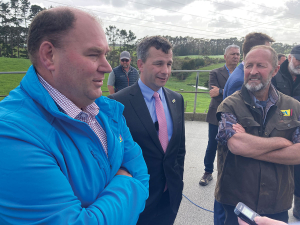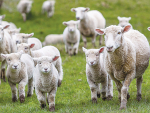The ongoing study is by scientists from the university’s Threatened Birds Research Group with some funding from the AHB. It is investigating the effects of modern aerial 1080 methods on native robins – monitoring a marked population of the birds, rather than the less-reliable traditional ‘five-minute bird count’ method.
Individually colour-banded robins were monitored in the Silver Peaks area before and after 1080 was dropped, to see whether or not any of the 19 birds were killed. A second study population of 15 marked robins in nearby Silverstream – where no 1080 was dropped – was also monitored during the same period for comparative purposes.
“The AHB’s possum control operation in the Silver Peaks gave us a rare opportunity to study the effects of 1080 on an intensively studied population of native birds,” says research supervisor associate professor Ian Jamieson.
“We suspected that improvements in the quality of 1080 baits, together with a big reduction in the amount of poison used, would mean less impact on non-target species, but this hypothesis had not been tested using a marked population.
“We also wanted to see whether or not the current practice of pre-feeding with non-toxic pellets to overcome potential bait-shyness in possums had any negative impact on birds.”
The researchers monitored the number of possums and rats at the two sites with chew tracking cards, to determine how effective 1080 was at killing two of the robins’ major nest predators. At Silver Peaks there was no sign of either rats or possums 11 days after the operation or again after 80 days. By comparison, there was no real change at the non-treatment Silverstream site during the same period.
All banded birds in the Silver Peaks site were observed alive 16 days after the 1080 operation, and 67% of monitored nests at the site successfully produced at least one fledgling. While all monitored birds in the control site were also re-sighted, breeding success was markedly lower; only 8% of monitored nests successfully produced at least one fledgling.
“The conclusions we can draw from this data is: firstly, the pre-fed 1080 operation at Silver Peaks had no negative effect on the robins; secondly, it knocked the possum and rat numbers down to almost zero; thirdly, robins experienced relatively high breeding success when predator numbers were low,” says Jamieson.
AHB research and TB eradication manager Paul Livingstone notes gaps in research on the effect of 1080 operations on native birds have been highlighted by DOC and Forest & Bird.
“We hope this study helps to reassure people aerial pest control operations using 1080 have genuinely changed for the better.”

















